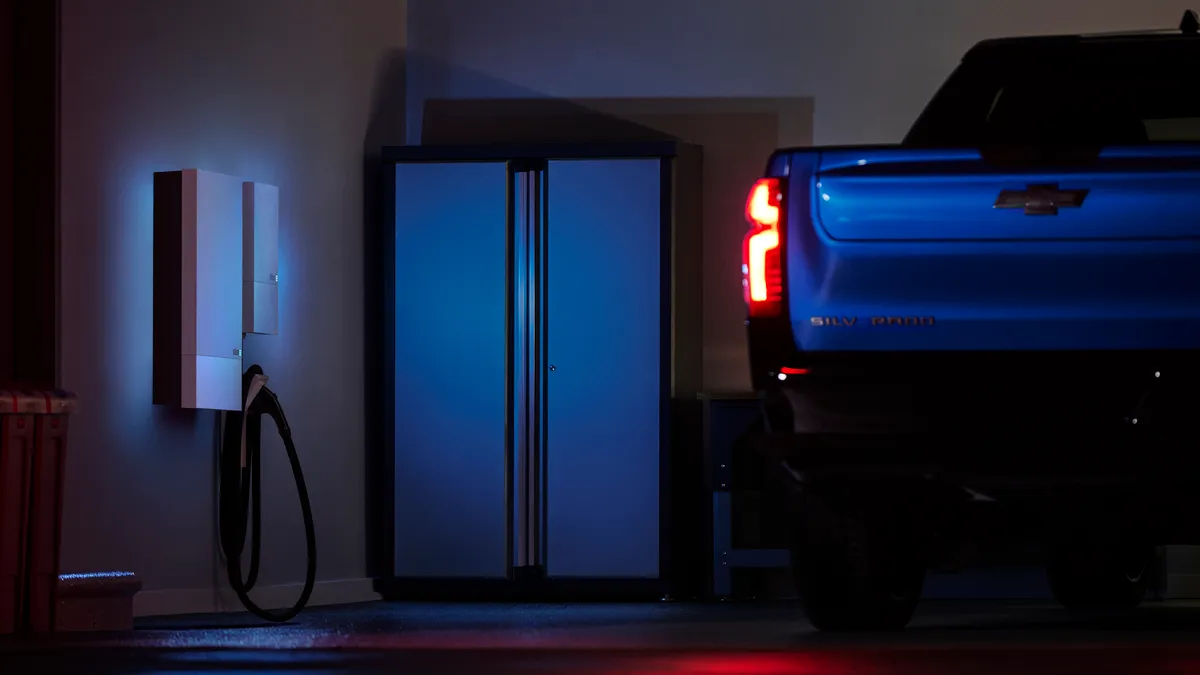General Motors will expand its commitment to electric vehicles with the creation of a new business unit called GM Energy, which will offer vehicle-to-home and vehicle-to-grid charging, stationary battery storage, solar products, software applications and cloud management tools for retail and commercial customers, the company announced Tuesday.
“We are not just focused on the vehicle,” said Mark Bole, vice president and head of V2X battery solutions at GM. “We're focused on energy, on the infrastructure, on the entire ecosystem because we know we really need to enable it for EV adoption.”
Three product and service offerings constitute GM Energy. Currently, Ultium Charge 360 connects GM vehicle mobile apps with seven major charging networks for consumers. Through GM’s Dealer Community Charging Program, its dealers get 10 Level 2 chargers they can place anywhere in their community, not including the dealer store itself. Ultium Home and Ultium Commercial, which are new additions, will focus on services to those markets.
The company said in a press release that it aims to “provide customers with more seamless and integrated energy management and help improve grid resiliency.” Properly equipped electric vehicles and stationary storage batteries will be able to send energy back to utilities during peak, high energy consumption periods.
The automaker is already working with Pacific Gas & Electric in California on a pilot program for bidirectional charging for use as backup power for the home. GM said in the press release that following initial lab tests, the two companies expect to expand the program to a subset of residential customers within PG&E’s service area in 2023.
Bole said GM is also talking with major utility companies in California, Florida, Michigan, New York and Texas. The goal for these discussions is to ensure a smooth electrification rollout nationwide, he explained.
GM also entered into an agreement with SunPower, a residential solar power and energy storage company. The two companies will develop a solar home energy and storage system that will allow car owners to send power from the battery in their compatible electric vehicle to their homes.
The 2024 Chevrolet Silverado EV, expected to be available in late 2023, will be the first GM production vehicle capable of bidirectional charging. “We want to go big in this area,” Bole said. “We are working hard on how we can bring bidirectionality to our broad spectrum of [electric vehicles] of the future.”
GM Energy’s partnerships and products will also serve its fleet customers. “We are talking to some of our large fleet customers today about their electrification needs,” said Bole, adding that fleets want help managing charging infrastructure and energy costs.
Last month, Hertz said it plans to order up to 175,000 GM vehicles to expand its fleet of electric vehicles. The first deliveries of Chevrolet Bolt EVs are expected in the first quarter of 2023.
GM’s Energy Services Cloud will connect customers with retail, fleet and commercial energy assets through cloud-based software applications. Bole explained that it will be open to third-party applications and will work with non-GM vehicles and with power utilities. “Through the telematics we can actually instruct the car to stop charging [or] start charging,” Bole said.
General Motors expects to sell 1 million EVs per year in North America and China by 2025 and has committed to investing $35 billion in electric and autonomous vehicles by mid-decade. In comparison, Tesla has delivered more than 900,000 vehicles through the first three quarters of this year. Ford expects to reach a rate of 600,000 annual EV sales in late 2023 and two million annually by late 2026.
















